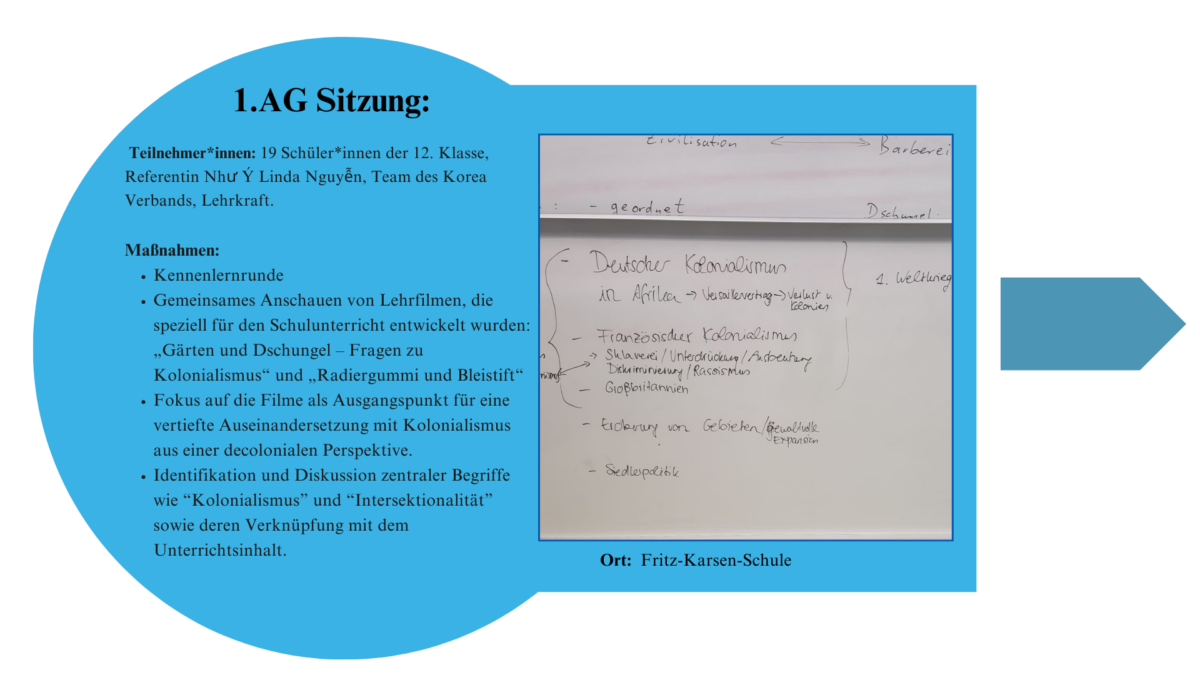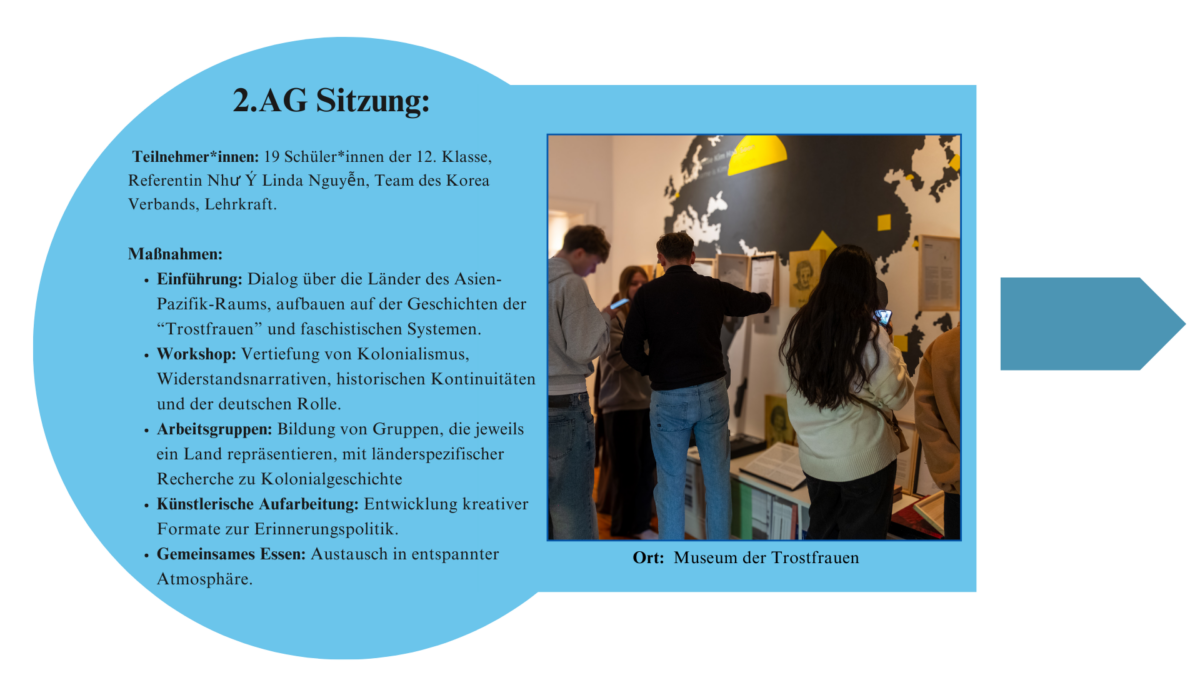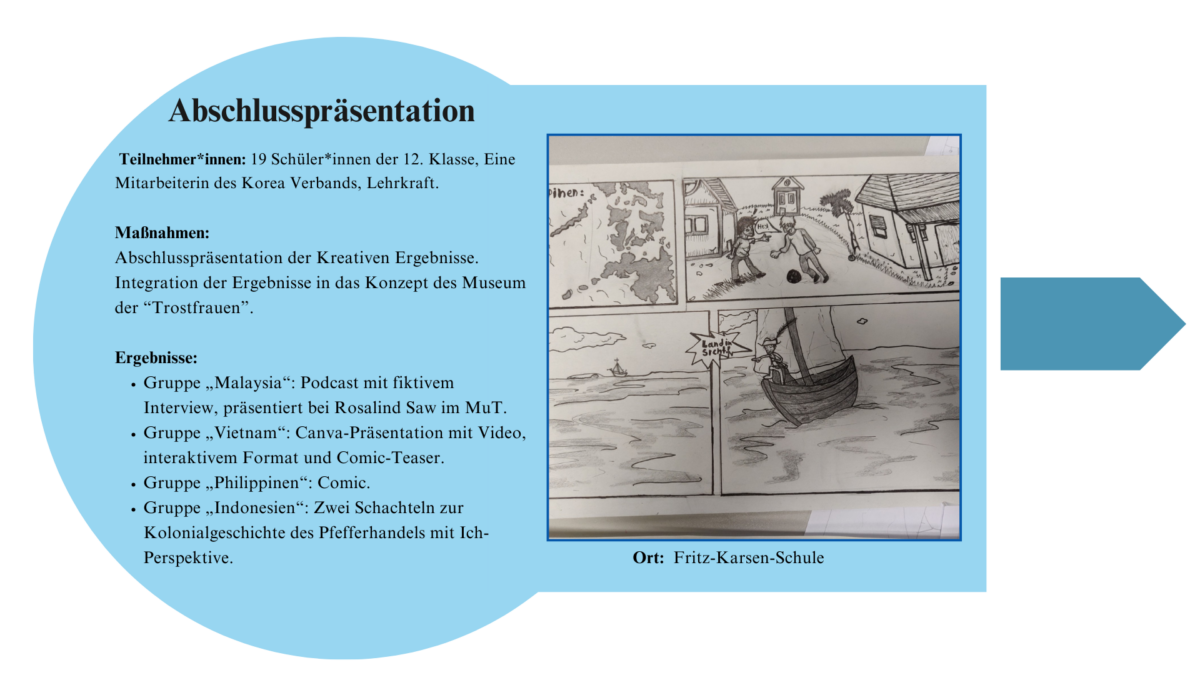As part of the funding program “Educational Work in Schools on Colonialism and Responsibility” (BIKO) of the Nord-Süd-Brücken Foundation, supported by the Berlin Senate Department for Education, Youth, and Family, the Korea Verband successfully implemented the project “Creating Asia-Pacific Spaces” at the Fritz-Karsen School last year.
The aim of the project was to close existing gaps in the Berlin school curriculum concerning the colonial and migration history of the Asia-Pacific region. It raised awareness among 12th-grade students at the Fritz-Karsen School School in Berlin-Neukölln about Germany’s historical responsibility and anti-Asian racism. Due to the positive feedback, the project now serves as a basis for developing a potential follow-up project: a training program for teachers.
Background
Interest in a critical examination of German colonial history is growing. The increased engagement and educational efforts regarding the colonization of the African continent and its devastating consequences to the present day is a welcome development. However, such efforts regarding the Asia-Pacific region are almost entirely absent. This is partly due to an undifferentiated conception of a vast cultural region in which historically distinct societies are subsumed under the broad term “Asia.”
German history textbooks lack coverage of both the colonial experiences of Asia-Pacific countries and the lasting effects of colonial structures—manifested in division, (civil) wars, poverty, and forced migration. Since the 19th century at the latest, many countries in the region were caught in the power struggles of Western and Japanese imperial ambitions. The German Empire also played an active role as a colonial power, contributing significantly to military knowledge transfers with Imperial Japan and China. Furthermore, both the FRG and the GDR promoted labor migration from these countries from the mid-20th century onwards, at a time when they were still deeply affected by the consequences of colonialism. Thus, both the colonial past and the migration movements from the Asia-Pacific region are inextricably linked to German history.
This lack of critical engagement leads to an incomplete understanding of German history, reinforces stereotypes, and contributes to insufficient reflection on Germany’s historical responsibility. A critical and nuanced exploration of these topics is therefore essential to provide students with a comprehensive understanding of history and to contribute to an inclusive and anti-racist society.
Measures and Project Implementation
The project began with preliminary discussions with teachers, followed by a full-day workshop at the Museum of “Comfort Women”. There, students engaged intensively with topics such as colonialism, sexualized violence, and narratives of resistance. They discussed historical continuities, such as military brothels during World War II and sexualized violence in the Vietnam War, and drew connections to issues such as sexism, patriarchy, and German colonial crimes. Subsequently, they creatively prepared their findings and developed concepts for presentation in the museum.
For further information about the project and access to the developed educational materials, please contact project manager Yann Werner Prell at: yann.prell@koreaverband.de.
Insights into Our Educational Project





Photos taken by Saebom Kim on December 18, 2024, at the Museum of “Comfort Women”.
We would like to express our gratitude for the support.

The content of these publications is the sole responsibility of the funded institution. The positions presented here do not reflect those of the Senate Department for Education, Youth, and Family or the Nord-Süd-Brücken Foundation.




